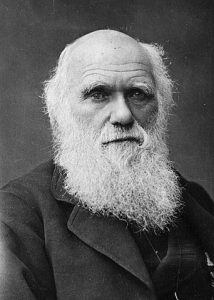 Mardi Gras is a Christian holiday and popular cultural phenomenon that dates back thousands of years to pagan spring and fertility rites. Also known as Carnival or Carnaval, it’s celebrated in many countries around the world—mainly those with large Roman Catholic populations—on the day before the religious season of Lent begins. Brazil, Venice and New Orleans play host to some of the holiday’s most famous public festivities, drawing thousands of tourists and revelers every year.
Mardi Gras is a Christian holiday and popular cultural phenomenon that dates back thousands of years to pagan spring and fertility rites. Also known as Carnival or Carnaval, it’s celebrated in many countries around the world—mainly those with large Roman Catholic populations—on the day before the religious season of Lent begins. Brazil, Venice and New Orleans play host to some of the holiday’s most famous public festivities, drawing thousands of tourists and revelers every year.
When Is Mardi Gras?
Mardi Gras is traditionally celebrated on “Fat Tuesday,” the Tuesday before Ash Wednesday and the start of Lent. In many areas, however, Mardi Gras has evolved into a week-long festival.
Mardi Gras 2023 will fall on Tuesday, February 21. Following two years of canceled events due to the COVID-19 pandemic, celebrations in New Orleans resumed in 2022.
What Is Mardi Gras?
Mardi Gras is a tradition that dates back thousands of years to pagan celebrations of spring and fertility, including the raucous  Roman festivals of Saturnalia and Lupercalia.
Roman festivals of Saturnalia and Lupercalia.
When Christianity arrived in Rome, religious leaders decided to incorporate these popular local traditions into the new faith, an easier task than abolishing them altogether. As a result, the excess and debauchery of the Mardi Gras season became a prelude to Lent, the 40 days of fasting and penance between Ash Wednesday and Easter Sunday.
Along with Christianity, Mardi Gras spread from Rome to other European countries, including France, Germany, Spain and England.
What Does Mardi Gras Mean?
Mardi is the French word for Tuesday, and gras means “fat.” In France, the day before Ash Wednesday came to be known as Mardi Gras, or “Fat Tuesday.”
Traditionally, in the days leading up to Lent, merrymakers would binge on all the rich, fatty foods—meat, eggs, milk, lard and cheese—that remained in their homes, in anticipation of several weeks of eating only fish and different types of fasting.
The word carnival, another common name for the pre-Lenten festivities, also derives from this feasting tradition: in Medieval Latin, carnelevarium means to take away or remove meat, from the Latin carnem for meat.

 Multilingual education – a necessity to transform education
Multilingual education – a necessity to transform education “Didn’t you realize that you were God’s temple,
“Didn’t you realize that you were God’s temple,  World Human Spirit Day is observed annually on February 17 as a day to encourage mindfulness through meditation; to get us to form the habit of constant reflection as a way to feel content in our pressure-filled society. According to Daniel Helminiak, it’s “a respected philosopher in the space of spirituality, the spirit is the mental function of awareness, insight, understanding, judgment, and other reasoning.” In Christianity, it is emphasized that the human spirit is the real person; the essential part of our existence.
World Human Spirit Day is observed annually on February 17 as a day to encourage mindfulness through meditation; to get us to form the habit of constant reflection as a way to feel content in our pressure-filled society. According to Daniel Helminiak, it’s “a respected philosopher in the space of spirituality, the spirit is the mental function of awareness, insight, understanding, judgment, and other reasoning.” In Christianity, it is emphasized that the human spirit is the real person; the essential part of our existence. HISTORY OF INTERNATIONAL CHILDHOOD CANCER DAY
HISTORY OF INTERNATIONAL CHILDHOOD CANCER DAY The theme for the 12th edition of the World Radio Day, to be celebrated on 13 February 2023, is «
The theme for the 12th edition of the World Radio Day, to be celebrated on 13 February 2023, is « 

 Background
Background
 “Man has life and death before him;
“Man has life and death before him;